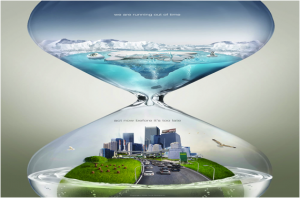Throughout the semester I have learned a lot in Sustainability marketing and it has definitely changed how I view the world. At first, I wasn’t quite sure what to think of the course. Since it was about sustainable marketing, I was not sure if the concept was entirely possible. I quickly learned it was possible and it would help the world greatly if every marketer was required to take this course.
This course also showed me how to market sustainable behaviours, which is a very useful tool. Every marketing student knows it is very difficult to change behaviours, let alone change a behaviour that you can’t see direct results from. Throughout the course and the final project, I was able to see how you can slowly change people’s perspectives and their behaviours.
This course has also made me very aware of my consumption patterns. Every time I open a product, I am blatantly aware of how much useless packaging is used. All this packaging just ends up being thrown away and as a result I end up feeling very guilty. Now I try and look for products with less packaging to begin with so I don’t end up complaining about it, then feeling guilty when I throw it away. I also try to buy products that have green labels on them. Before this class I was unsure what each label meant and didn’t know if they were reliable. Now I am able to tell the difference and can be a more sustainable shopper.
Before this course I thought that cutting our consumption was the only way we were going to help the environment. Now I realize through cutting and switching to more innovate technology we will still be able to advance as a society and still improve our economic well being. After completing this course, I see no reason why companies cannot switch to sustainable practices. I have no sympathy for company’s who do not wish to partake in these practices, and then complain about depleting resources for their company.
By switching to sustainable practices, it not only helps the environment but usually helps companies decrease costs through this process as well. It is a win-win situation. So if baffles me why companies aren’t being more sustainable. Maybe they aren’t being educated of the benefits or maybe they are just being stubborn, but either way it pains me to see that some companies are still being careless of the environment or are using it just to generate sales.
Overall, I thoroughly enjoyed the class. I not only learned a lot about marketing but about my own sustainable practices as well. It has opened me up to new ways of thinking about marketing and the environment.





